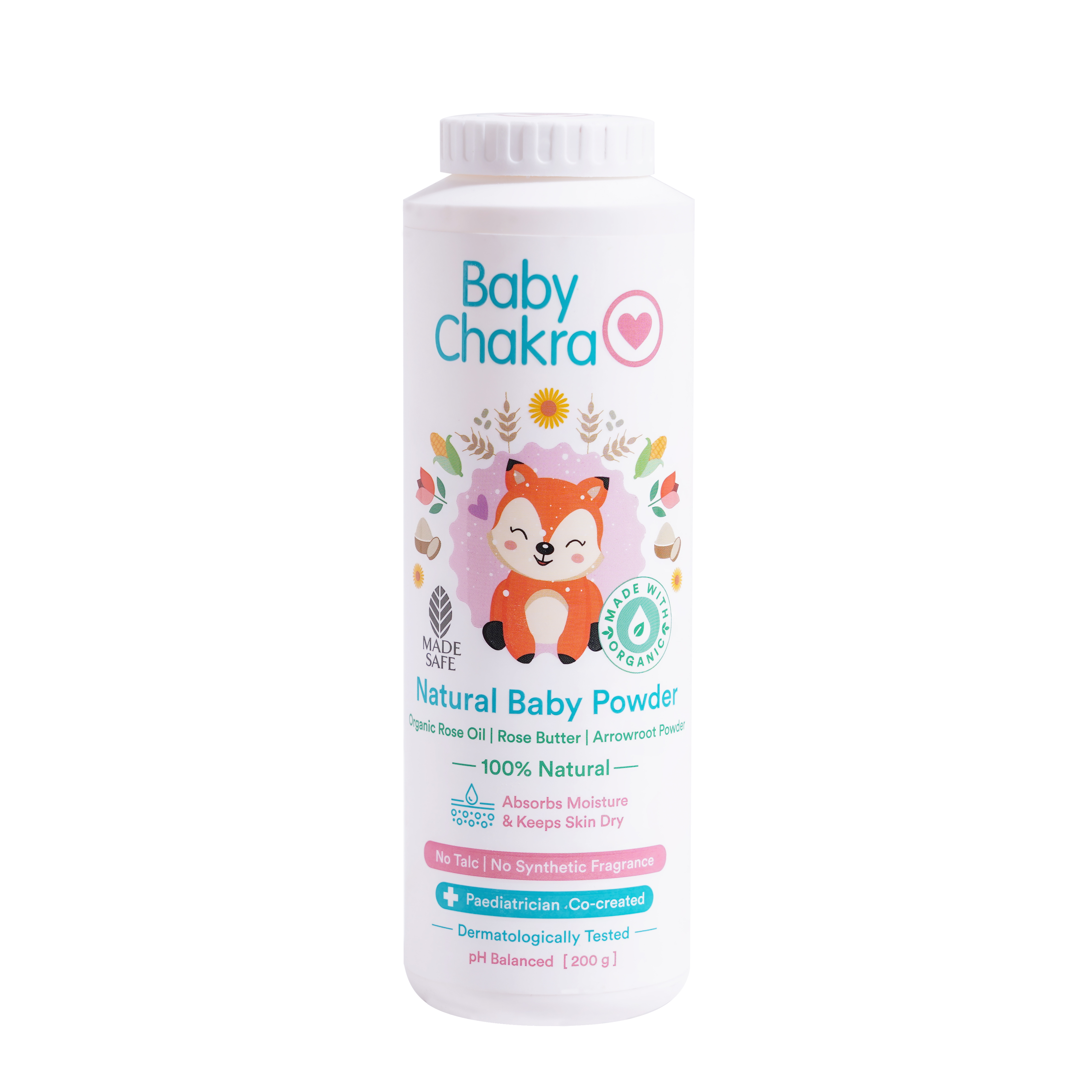
Here’s Why You Must Say ‘No’ To Toxins & Talc In Your Baby’s Powder
1 Aug 2022 | 3 min Read
Sayani Basu
Author | 607 Articles
Mums should be careful and avoid toxins and talc while picking baby powder for the little one, as it is generally applied directly to the baby’s skin. Baby powder absorbs moisture and keeps your baby comfortable, especially when the nappy brushes against his/ her bottoms.
Your baby’s skin is 20-30% thinner than an adult’s and it is super-soft and sensitive as it is still developing. Therefore, while choosing a baby powder for your baby, you should read the labels to avoid toxins and talc.
Some of the talcum-based baby powders with chemical components like magnesium and silicone can harm the little one’s skin. Therefore, it is advisable to opt for a talc-free baby powder.
Read on to know more.
Why Should You Say No To Talc?
Talc powders contain a substance called asbestos that is highly toxic and can cause severe irritation, redness, and soreness. If your baby accidentally inhales it, it can cause asthma, bronchitis, and talcosis. According to the American Academy of Paediatrics, talcum powder should not be used for babies because its small particles can end up inside the lung and can cause respiratory issues.
If the powder container accidentally spills on the little one or even if he/she inhales a small amount of the particles, it can cause a serious lung disease called pneumoconiosis. Talcum powder can also cause redness and irritation if it accidentally gets into your baby’s eyes.
Why Should You Say No To Toxins?
- Asbestos: Asbestos is an ingredient that is mostly found in your baby’s talcum powder. It can be harmful if inhaled or swallowed by infants. When inhaled, asbestos fibres can cause chronic health problems to the lungs, throat, and gastrointestinal tract. It can also cause a rare type of chest cancer (called mesothelioma) that can occur after five decades of asbestos exposure.
- Paraben Preservatives: Paraben content in your baby’s powder might lead to acute and chronic side effects. In addition to these, it can cause allergic reactions, and hormone disruption, along with developmental and reproductive toxicity. Such an ingredient is also harmful to adults due to the hazards it can cause.
- Nanoparticles (Zinc Dioxide/ Titanium Dioxide): If inhaled, nanoparticles in your baby’s powder can cause respiratory issues. Your baby’s lungs have difficulty cleaning small particles and can pass from the lungs into the bloodstream, penetrating skin or lung tissues. This can cause severe organ damage.
- Genetically Modified Ingredients (GMO): The presence of GMOs in your baby’s talcum powder has been associated with cancer, organ failure, and birth defects. There are countries around the world passing laws against GMOs and many of the regulations have specifically targeted infants.
- Gluten: Your baby’s powder should also be free from gluten, a type of bread-based grain protein which is found in several other foods, including rye, wheat, barley, and in some bread and snacks.
Medical research suggests that within the first year, a baby’s digestive system cannot tolerate the harsh gluten protein. This can lead to severe constipation and abdominal pain in babies when after being absorbed in the skin.
Now that you are aware of harmful toxins found in some baby powders, make sure to choose one that is dermatologically tested and formulated using organic, natural and chemical-free ingredients.
A


Related Topics for you
Suggestions offered by doctors on BabyChakra are of advisory nature i.e., for educational and informational purposes only. Content posted on, created for, or compiled by BabyChakra is not intended or designed to replace your doctor's independent judgment about any symptom, condition, or the appropriateness or risks of a procedure or treatment for a given person.

